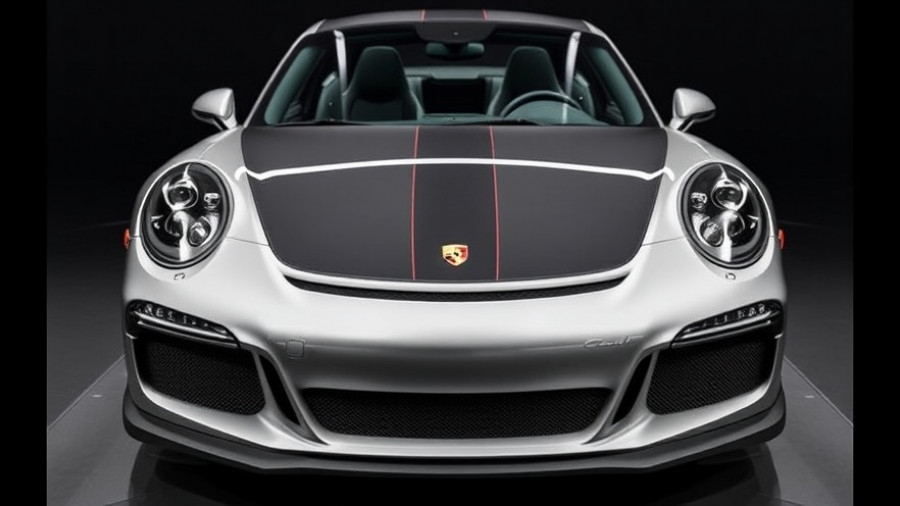
Porsche's Profit Reality Check: A Deep Dive
Porsche, renowned for its luxurious sports cars, is experiencing a staggering decline in profitability, reporting a dramatic 99% drop in operating profit this year. This notable decrease is more than just a financial statistic; it highlights the challenges the automotive industry currently faces, grappling with fluctuating consumer demand and ongoing supply chain issues.
The Shifting Landscape of Luxury Automaking
In a world where technology continuously advances, traditional automakers like Porsche must adapt or risk falling behind. This year, Porsche has not only reported diminished profits but is also bracing for tough economic conditions in a market heavily influenced by international factors, including a slowing Chinese economy. With operational returns expected to drop from 18% to 15-17%, the company is preparing for a challenging fiscal year in 2024 as it aims to embrace change through its upcoming product launches.
New Models Amid Economic Headwinds
Porsche’s strategy includes launching four pivotal models: the Panamera, Macan, Taycan, and iconic 911. According to the company, these new cars are crucial to reinvigorating brand enthusiasm and customer loyalty, especially in competition with electric vehicle trailblazers. Despite the slowed growth, Porsche reported a 7.7% sales revenue increase last year to €40.53 billion ($44.29 billion) and a 7.6% rise in operating profit to €7.28 billion, showcasing its resilience amidst adversity.
Investments in the Future
The automaker isn't just resting on its laurels. Porsche has committed to the 'Road to 20' initiative, targeting a long-term operating return on sales beyond 20%. This strategic commitment necessitates significant investments in product innovation, including a projected €800 million dedicated to bolstering its portfolio with a mix of combustion, hybrid, and electric powertrains.
Workforce Changes Reflecting Strategic Shifts
In tandem with these financial adjustments, Porsche will also strategically reduce its workforce. According to industry experts, this plan to trim approximately 1,900 jobs by 2029, primarily through natural attrition and voluntary retirement, reflects efforts to streamline operations and navigate the current economic climate. These changes may lay the groundwork for a leaner and more efficient organization despite the inherent challenges.
The Global Market's Influence on Performance
While Porsche remains a prominent player in the luxury automotive sector, its heavy reliance on the Chinese market becomes evident. The company anticipates a challenging market landscape, particularly in China, which significantly influences global sales figures. Despite ongoing geopolitical tensions and competition, Porsche remains optimistic about potential growth among high-net-worth individuals in this crucial market.
The Takeaway for Consumers and Investors
For potential customers and investors, understanding Porsche's current financial landscape offers vital insights into the company's strategic maneuvers. As luxury automakers adapt to evolving demands, being aware of their challenges and innovations can guide both purchasing decisions and investment choices. Porsche's journey serves as an example of how even the most esteemed brands must continuously reinvent themselves to thrive in an unpredictable market.
Final Thoughts: An Invitation to Stay Informed
As Porsche prepares for a transformative year ahead, it invites its customers and stakeholders to join them on this exciting journey. With new models poised for release and a focus on innovative technology, the iconic brand seeks to not only recover from this profit dip but also redefine itself in the luxury automotive space. Keeping an eye on Porsche’s evolving strategies is essential for anyone invested in the automotive industry.
 Add Row
Add Row  Add
Add 




Write A Comment